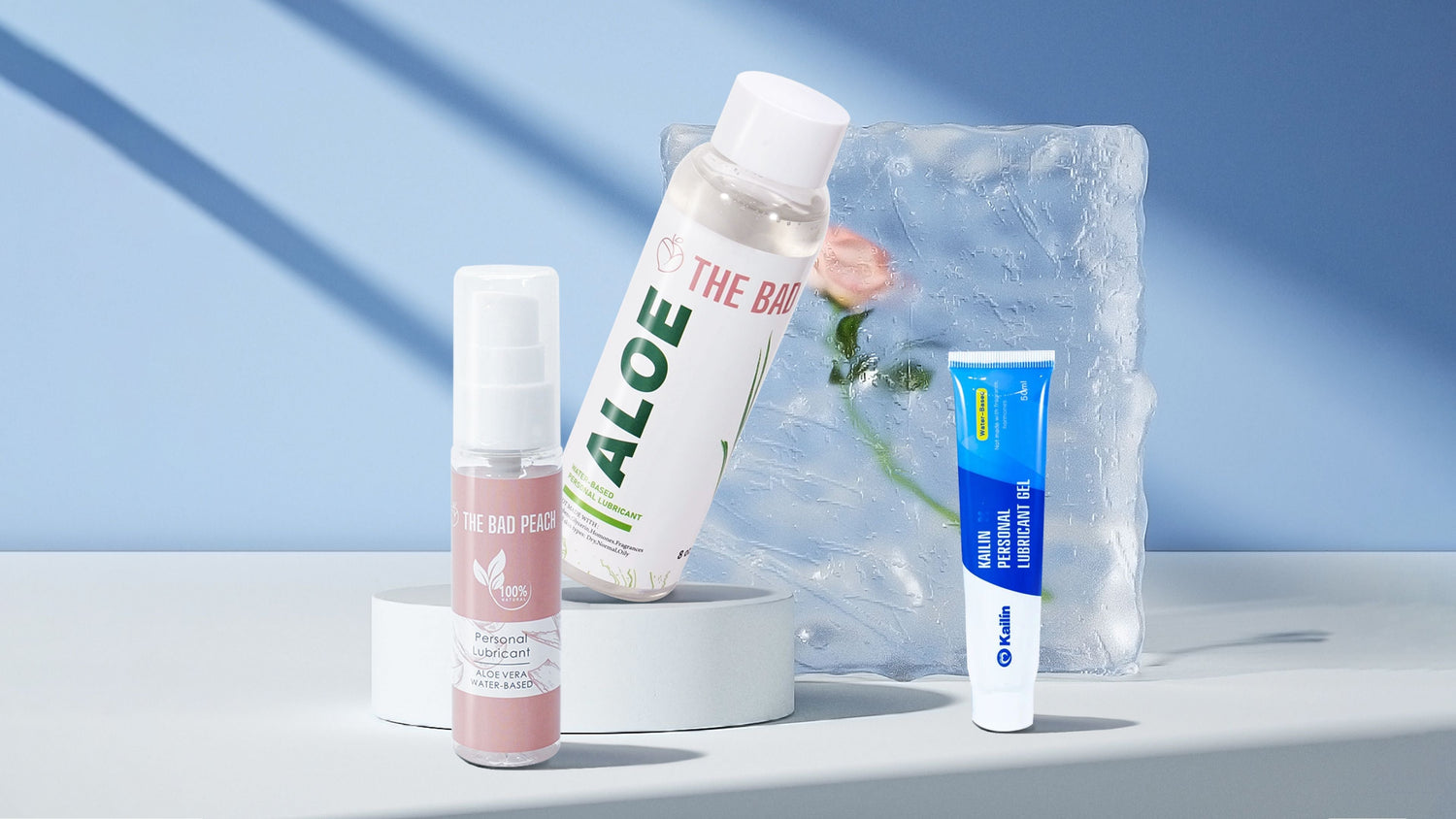Some things are better with a little help. If you use sex toys, a good lubricant can change the whole experience. It can help you feel better, move smoother, and avoid pain. But not all lubricants are the same. Some work great with toys. Others can damage them. This guide shows you how to pick the right one, step by step.
Why Lubes Matter When Using Sex Toys
Even if your toy feels smooth, natural body fluids may not be enough. A good lubricant helps more than people think. It protects your body, improves comfort, and helps toys last longer.
- Less Friction, More Comfort
Without enough lube, rubbing can feel rough or painful. Lube helps the toy slide more easily, which feels better and prevents soreness.

- Helps Prevent Small Injuries
Dry use can cause tiny skin tears, especially with large toys or anal play. These small cuts can hurt and may let in bacteria. Lube lowers that risk.

- Better for Sensitive Areas
The skin inside your body is soft and thin. It needs extra care. Lubricant adds a gentle layer that protects these spots during play.
- Improves Toy Performance
Some toys have strong vibrations or textured surfaces. Lube helps those features feel smoother and more enjoyable.
- Safer for Solo or Partner Play
When you use toys with a partner, movements can be faster or deeper. Lube helps control that extra pressure so it stays fun and safe.
- Protects Your Toys
Some sex toys last longer when used with the right lubricant. Using the wrong type—or no lube at all—can wear down the toy’s surface over time.
What Lubricants Are Made Of
Lubricants come in different types. Each one feels different on your skin. Each one works differently with sex toys. Some are safe for all toy materials. Some are not. Below are the most common ones:
Water-Based Lubricant
Water-based lubricants are the most popular. Most people use them for sex toys, condoms, or solo play.
Pros:
- Safe for all kinds of sex toys
- Easy to wash off with water
- Works with condoms
- Feels natural on skin
Cons:
- Dries out faster than other types
- May need to reapply often
- Can feel sticky after some time
Water-based lubes are a great first choice. They are soft, smooth, and usually gentle on skin. You can also find thick versions or ones made for sensitive users.
Silicone-Based Lubricant
Silicone lubes are super slick and long-lasting. They don’t dry out fast. You can use them in the shower or bath.
Benefits:
- Very slippery and smooth
- Lasts a long time without reapplying
- Works well in water (like bath or shower)
Drawbacks:
- Not safe with silicone sex toys
- Harder to clean off skin or toys
- Can stain sheets or clothes
Silicone-based lubes work best for long sessions. But be careful. They can ruin silicone toys. Use them only with toys made of glass, metal, or hard plastic.
Oil-Based Lubricant
Oil-based lubes are thick and strong. People often use natural oils, like coconut oil. Some buy special oil lubes from stores.
Advantages:
- Feels rich and smooth
- Lasts longer than water-based lubes
- Can double as massage oil
Disadvantages:
- Breaks latex condoms
- May clog pores and cause infections
- Can damage silicone or rubber toys
- Very hard to clean off
Oil-based lubes may work for outer play or massage. But they are not the best pick for sex toys, especially soft ones.
Match Your Lube with Your Toy
Your toy’s material is important. Not all lubes are safe for all toys. Use the list below to choose the best match.
Silicone toys:
- Use only water-based lubricants
- Do not use silicone or oil-based lubes
- Use water-based, silicone-based, or oil-based
- All types are safe, but clean well after
Metal toys:
- Safe with all types of lubricants
- Choose based on comfort or feel
Hard plastic toys:
- Water-based and silicone-based both work
- Oil-based may stain or wear them down
Rubber or jelly toys:
- These are tricky; some break down over time
- Use water-based only, and clean after each use
If you are unsure, check the toy’s package or maker’s website. Most will tell you which lubricants are safe.
Quick Tips for Using Lubricants
Before you try a new lube, take a minute to think. Lubricants are safe most of the time, but using them the right way helps you feel even better.
You should:
- Do a skin test before full use, especially if you have sensitive skin
- Read the ingredients list if you are allergic to anything
- Keep a towel nearby in case things get too slippery
- Start with a small amount and add more if needed
- Avoid strong scents or colors—they can irritate the body
- Clean your toy with warm water and soap after every use
- Store your lube in a cool, dry place away from sunlight
- Replace open bottles after one year, even if not used up
Lubricants are tools, just like your toy. Take care of them, and they will take care of you.
Summary
The right lubricant depends on your toy and your body. Water-based works with everything. Silicone feels great but may hurt silicone toys. Oil-based lasts long but can cause problems. Try what feels good, and always play safe.
FAQs
Q1: Can I use saliva as a sex toy lubricant?
No. Saliva dries fast and does not stay slippery. It also contains bacteria from the mouth. That may lead to irritation or infection, especially during internal use.
Q2: What should I do if a lubricant causes itching or burning?
- Stop using it right away.
- Wash the area with warm water and mild soap.
- Avoid products with glycerin, perfumes, or warming agents next time.
- Try a lube made for sensitive skin.
Q3: Can I use body lotion, baby oil, or coconut oil as a lube for toys?
No. These products are not made for internal use. They can upset your body’s natural balance and damage your toy, especially if it’s made of rubber or silicone. Always use lube made for intimacy.
Q4: How much lubricant should I apply on a toy?
Use enough to cover the surface that will touch your body. A coin-sized amount is a good start. Add more if things feel dry or sticky. Too much is not harmful, but it may drip or stain.
Q5: Do I really need lube if the toy already feels soft?
Yes. A soft toy still creates friction when it moves. Lube helps reduce that rubbing and makes the experience smoother, safer, and more enjoyable—especially during longer play.




Leave a comment
This site is protected by hCaptcha and the hCaptcha Privacy Policy and Terms of Service apply.